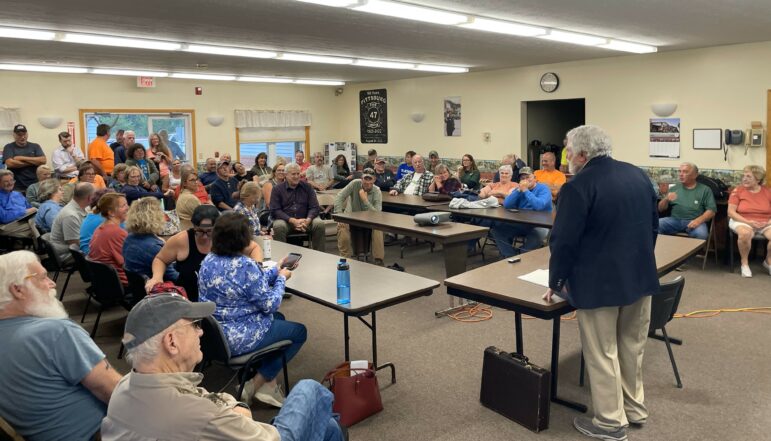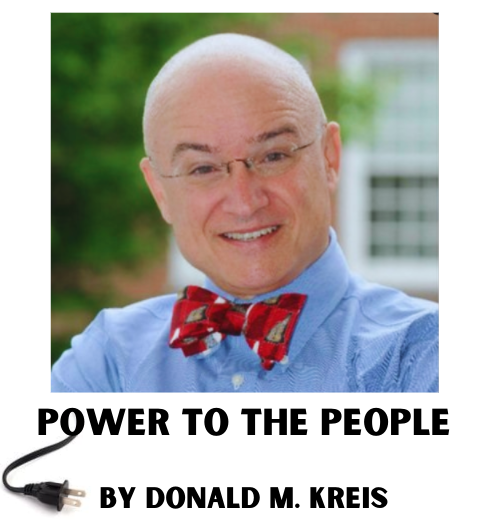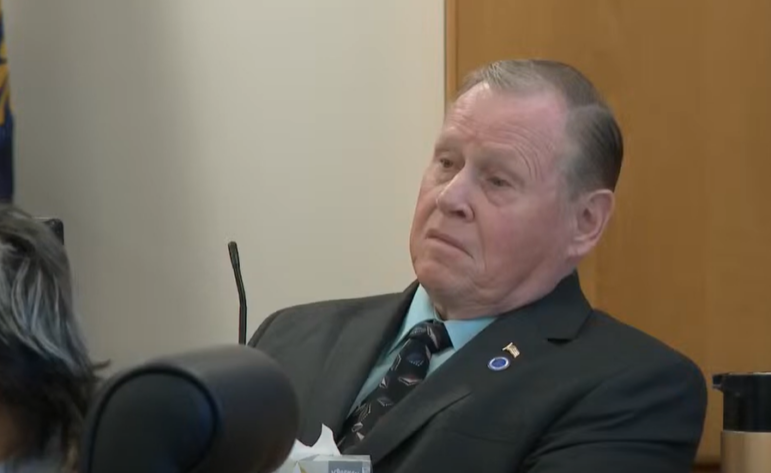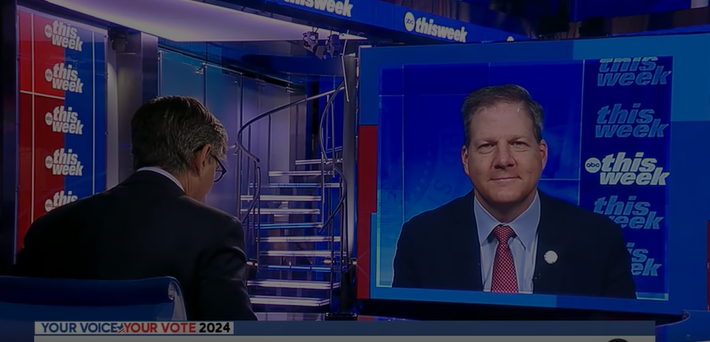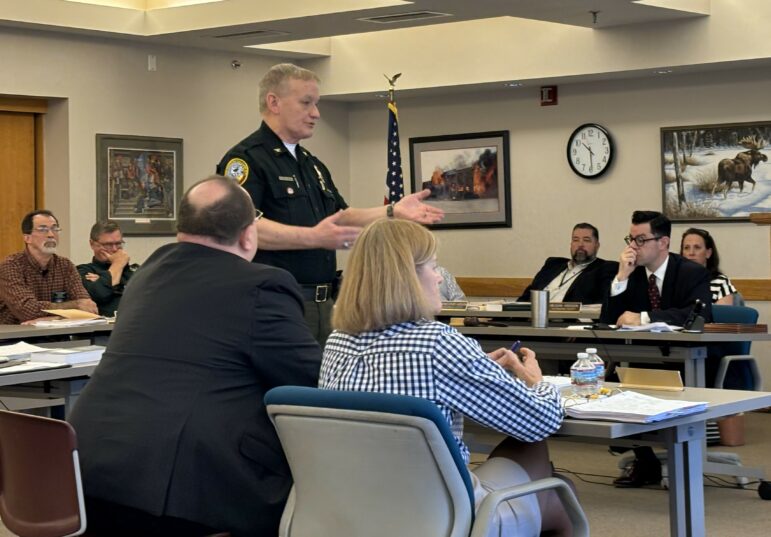By PAULA TRACY,
InDepthNH.org
CONCORD – A 10-cent charge for single-use plastic bags could
be coming to a store near you as legislators debated an amendment to a bill
Tuesday that would create a uniform state bag law.
Similar to measures implemented in California and coming next year to Maine, Vermont and other states, it would act as an incentive to consumers to bring their reusable bags while shopping, said advocates.
But it would not put much of a dent in the problem and cause headaches and anger at the stores for consumers, opponents said.
According to the amended bill heard by the House Municipal and County Government Committee on Tuesday, the maximum cost would be 50 cents for a total of five bags per purchase. It would take effect a year after passage. The bill would extend to recycled paper bags. In both cases, the revenue would be kept by the store.
This is a retained bill and the committee must report it out next week by the deadline. If they support the legislation, it would be one of the first bills to come up when the legislature comes back into session in January.
Melissa Gates, regional director of the Surfrider Foundation, which worked to help make Maine the third state to ban single-use plastic bags this year, said her organization can support the amendment to House Bill 559 sponsored by state Rep. Judith Spang, D-Durham.
She called it a “pretty decent compromise…to achieve the end to the production of single-use bags.”
Made with petroleum, the bags do not easily degrade in the environment, are choking waterways, filling landfills and are now becoming costly for communities to recycle, as the largest market for recycling them in China is gone.
“We know we cannot recycle our way out of this plastic bag problem,” she said.
But John Dumais, president and chief executive officer of the New Hampshire Grocers Association, said the bill only targets three-tenths of one percent of all plastic film and it would harm both consumers and retailers.
Over 79 stores in New Hampshire have bins to recycle the bags and he said voluntary efforts and educational efforts are preferred to this “one size fits all mandate.”
Rep. Spang said incentive is needed to produce these alternatives and noted that the state will be an island if it does not do something like this to reduce the amount of plastic waste.
Rep. Marjorie Porter D-Hillsborough, a member of the committee, said her town has increased costs for recyclables.
She said from her childhood she recalls the mantra to “reduce, reuse, recycle” but the effort has been largely ineffective.
“Don’t you think that this would encourage people to reduce the amount of waste?” Porter asked Dumais.
Curtis Barry of the NH Retail Association said a “cookie-cutter solution does not work and may have unintended consequences.”
He said his association is a varied association, “and just as varied are the types of bags they distribute” to their consumers.
“Members are generally heading in the right direction,” he said. They are eliminating single-use bags when they are out, not ordering any more and finding products better for the environment.
He said the data does show that in places where they have banned plastic bags, people will then purchase them off the shelf.
Erin Graziani, communications manager for the American Progress Bag Alliance, representing the plastic bag industry and recyclers, said in Concord at Market Basket, Hannaford and Shaws, customers can drop off their used bags and they can be used to make asphalt and railroad ties.
She said the bags being considered for banning in New Hampshire are the least carbon-intensive option at a grocer’s counter, including paper.
“We share goals to improve sustainability but this bill will not….achieve New Hampshire’s sustainability goals,” Graziani said.
Bonnie Christie, chair of the Hopkinton Recycling Committee, thanked the bill’s sponsors and said we are facing a crisis that requires change on multiple levels. It is when we come to a crisis point, that there is a change in consumer behavior, she said.
Sitting before the committee with a pile of single-use plastic bags, she said she found them after spending one hour along the banks of the Merrimack River in Concord in a 100-square foot area.
“I think it is great to have retailers doing some leadership on this, but it only goes so far,” she said. “We have to have incentives.”
The bill was among four that were considered during this past session.
It was retained by the House Municipal and County Government Committee essentially as enabling legislation that would allow municipalities to take action on single-use plastic bags. Over the summer, the committee studied it and added the amendment.

